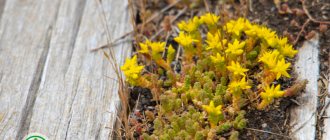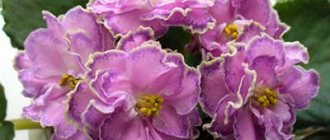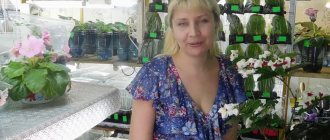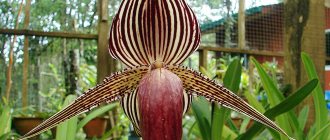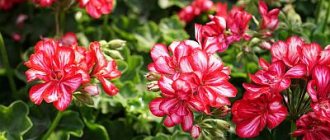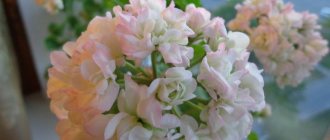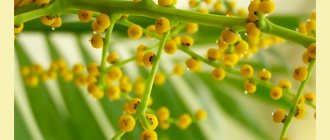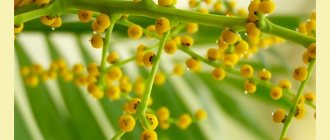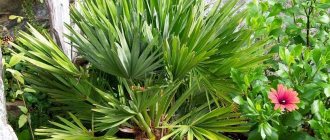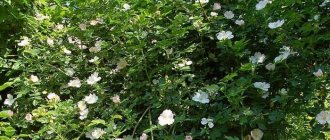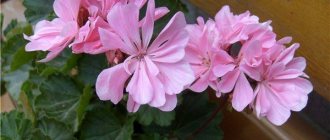Many gardeners grow netcreasia (also called tradescantia) as an hanging plant, periodically pruning the rapidly growing stems. You can use overgrown flowerpots in the form of living partitions or curtains, covering a door or window opening with them. The shoots are partially directed upward, and the remaining ones hang down. You can also grow the plant in a flowerbed - netcreasia fits well into landscape design. In the fall it needs to be dug up and moved into the house.
Description
The plant is native to the eastern part of Mexico (Gulf Coast).
It grows in the highlands of Mexico along with cacti and agaves. The stems and leaf blades are purple-lilac-greenish in color, the leaves are sparsely pubescent, oblong-lanceolate in shape, their length is about 10 cm, width - up to 3 cm, the apex is slightly pointed. The flowers are pink in color, up to 2 cm in diameter, the flowering phase lasts from May to August.
Setcreasia needs frequent watering, but care must be taken to ensure that moisture does not stagnate. The flowerpot should be placed in a well-lit place so that the plant has a rich purple color (the indoor plant should be in direct light for 2-3 hours a day, preferably in the morning).
There is a sign that if a single woman brings netcreasia into her house, she will soon meet her betrothed.
If the plant grows in the apartment of a married woman, it will protect against adultery and save the marriage. Setcreasia will relieve the owner of the love spell, reduce negativity and stress.
Tradescantia
Phalaenopsis propagation at home: examples by children and cuttings
For many plants, the main decorative component is not the flowers or the shape of the leaves, but the unusual coloring of the main vegetative part. Thus, setcreasia is famous for its bright purple leaves and purple-brown stems.
The second name of the plant is tradescantia, and perhaps it is under this synonym that it is most familiar to us. However, among all the known diversity of Tradescantia, it is possible to distinguish individual species that differ in their decorative properties.
Setcreasia (Tradescantia) purple is famous, as already mentioned, for its color. Creeping and hanging shoots bear elongated sessile leaves with light violet-purple pubescence. At the ends of the shoots, in good light, small, again purple, branches are formed, which do not differ in any significant decorative qualities, but completely complement the overall lilac-purple appearance of the entire plant.
Tradescantia is a widespread plant among modern novice plant growers, so finding and rooting a cutting of this plant is not difficult. However, for those who want to get acquainted with all the diversity of existing species and varieties, acquaintance alone may not be enough. The entire range of tradescantia can be found only in a large houseplant store and placed as a remote order - flower delivery to Balashikha can be carried out quite quickly and with the preservation of all available material.
Setcreasia is unpretentious and does not require any special treatment.
Kinds
Setcreasea purpurea
Setcreasea purpurea
The stems and leaf blades are slightly pubescent, purple-green above, purple below. In summer, small pink flowers bloom in the axils of the leaves. Used as an ampel crop.
Setcreasea pallida
Setcreasea pallida
This is another name for Setcreasia purpurea. The length of the stems is, as a rule, about 100 cm, the leaves are elongated-lanceolate, their length is up to 17 cm, width is about 3.5 cm. The apex of the leaf blade is slightly pointed, the leaves are purple-lilac in color.
Setcreasea viridis
Setcreasea viridis
The shape of the leaf blades is elongated, the apex is pointed, the shade is green-pistachio. The leaves are slightly pubescent, the flowers are collected in bunches.
Setcreasea striata
Setcreasea striata
The leaf blades are small, velvety, rounded at the base, the apex is slightly pointed. On the upper side, the shade of the leaf is bronze-green with longitudinal stripes of a whitish shade; on the bottom, the color of the leaf blade is pink-lilac. Flowers of a lilac hue.
Trimming
It is recommended to carry out pruning systematically.
Pruning helps maintain a dense and compact bush shape.
- It is advisable to do this before the plant begins to actively grow.
- It should be strong enough, since after pruning, only 2-3 cm .
In addition, you need to periodically pinch out young shoots to form a beautiful and lush bush.
Features of cultivation
Soil selection
The soil substrate can be purchased at a flower shop or prepared yourself. To do this, mix turf soil, sand and compost in equal parts, add a little charcoal.
Lighting
The plant is a light-loving plant, so the lighting should be bright and diffused. Netcreasia purpurea is placed in direct sunlight every morning for 2-3 hours, then the internodes will not stretch, and the leaf blades will acquire a rich shade. If the lighting is insufficient, then the plant is illuminated with a phytolamp for 16 hours.
Temperature, air humidity
If the plant receives the right amount of light throughout the year, and the length of daylight is the same, then the flowerpot can be kept at room temperature. When the lighting is insufficient, including in winter, netcreasia is placed in a cool room with a temperature of about +10 degrees to prevent the stems from stretching and the formation of pale shoots.
Air humidity should be increased, but the plant should not be irrigated with a spray bottle. Villi on leaf blades can trap water droplets, which can lead to whitish spots. You can pour pebbles or expanded clay into a tray, add water and place a flowerpot on top.
Watering
You need to water it abundantly with settled water at room temperature so that the earth ball is well moistened, but not excessively. Do not allow the soil in the pot to dry out.
Transfer
Carry out in early spring, when the root system of the plant grows greatly and does not fit in the pot. The peculiarity of netcreasia is its rapid growth, so after a few years it is replaced by a young plant.
Trimming
Produced systematically before the start of active growing season. Old stems are cut back heavily, leaving about 3 cm in length. Young shoots are regularly pinched to form a lush and neat bush.
Winter care
The tips of the leaf blades may dry out in winter, but they should not be irrigated, since drops of water can cause whitish spots to appear on the surface of the leaves. In winter, plants are kept in a state of relative dormancy - the intensity of watering is reduced and the air temperature is lowered.
Watering.
It is advisable to stick to moderate watering, since both an excess of moisture and a lack of it equally do not have the best effect on the growth and development of the plant.
Setcreasia purpurea is not one of the most common types of Tradescantia, therefore, in some cases, problems may arise with finding it - but when ordering this species from a plant catalog, flower delivery to Maryino guarantees you fast and timely transportation of the plant directly to your hands.
| ANSWERS ON QUESTIONS |
Reproduction methods
The plant can be propagated in the following ways:
- cuttings. The apical cuttings are placed in a container with water or in a soil substrate, after the roots are formed, 3-4 plants are planted in one pot so that the bush grows lush and looks beautiful;
- seeds. The seed material is soaked in water with the addition of a growth stimulant, then sown in a container, sprinkled with a little soil, and covered with film. Lighting should be diffused, temperature about +20 degrees. After 1-1.5 months, sprouts appear on the surface of the soil, after which the film is opened daily for ventilation. When several leaves have formed on the young plants, you can transplant the sprouts into a pot.
soil mixture
A suitable soil mixture can be purchased at any garden store - it should be a universal soil for indoor plants, to which you need to add baking powder.
There are no requirements for the soil, the main thing is that it contains components useful for the flower .
- Before planting a flower, you will need to make a good drainage layer in the pot, which will help prevent excessive soil moisture.
- Then add a layer of soil and plant the plant.
The pot should be the same in width and height.
Diseases and pests
Pests practically do not damage netcreasia. Sometimes it can be attacked by spider mites, whiteflies or scale insects. They fight the pest with an insecticide solution, soap solution, and garlic infusion. If you do not follow the basic rules of caring for a plant, it may develop gray rot or blackleg. In this case, the flowerpot is treated with a fungicide solution.
Setcreasia variegated
Monstera variegated or variegated in the interior
The description of netcreasia variegata should begin with an understanding of the term. Variegated is variegated. If we consider netcreasia specifically, then on its leaves there are clearly visible areas with a light lilac color. This hybrid is not very common due to the fact that it is more demanding in terms of maintenance.
Setcreasia variegated
The lightened areas are not able to synthesize chlorophyll, so they exist only due to the remaining dark part. Over time, the bright lightened stripes may disappear, becoming darker in color. The phenomenon is due to non-compliance. To ensure that Severkeasia variegata does not lose its unusual color, it must be provided with:
- quality care;
- appropriate soil composition;
- timely watering.
Reproduction of the hybrid is possible by cuttings.
Important! For this hybrid, the use of fertilizers with a high nitrogen content is prohibited.
Tips for the first days after purchase
A plant bought in a store is kept in quarantine for the first 10-14 days, away from other house flowers.
Conditions during this time should be normal, as described above. Adaptation to shade or greenhouse conditions is not required.
After making sure that the flower is not sick or infected with parasites, they begin to transplant it. There is no need to wait for spring, because... transport soil is not suitable for long-term plant storage.
When replanting for the first time, the soil in which the plant was sold is carefully shaken off or washed off with water, being careful not to injure the roots.
Fertilizer application
In order for netcreasia to be lush and delightful with its flowering, it is important to periodically fertilize.
Any universal fertilizer is suitable for fertilizing.
To do this, it is worth using universal fertilizers and special liquid fertilizers.
Fertilizer needs to be applied every 20–30 days . If the flower is dormant, no feeding is required.
